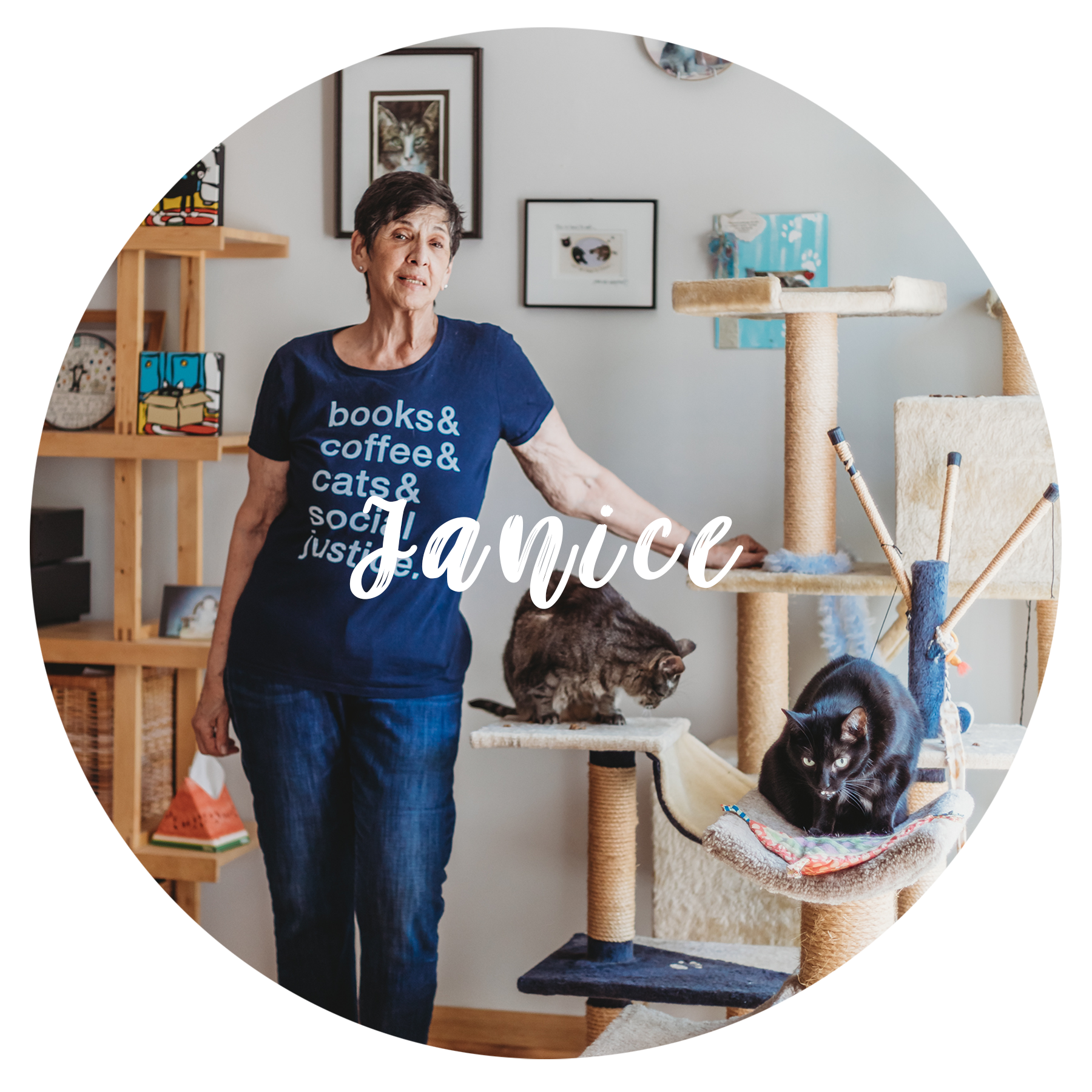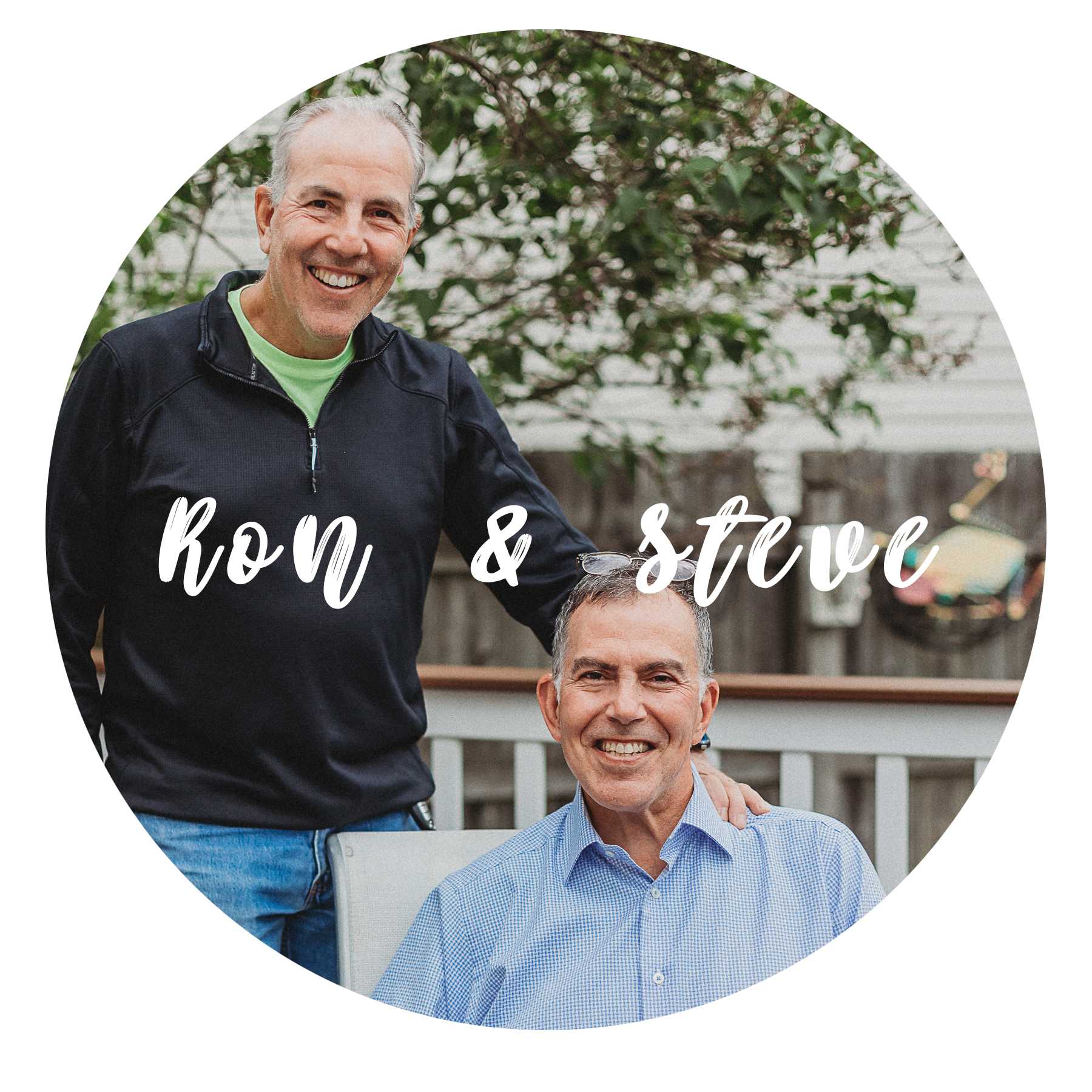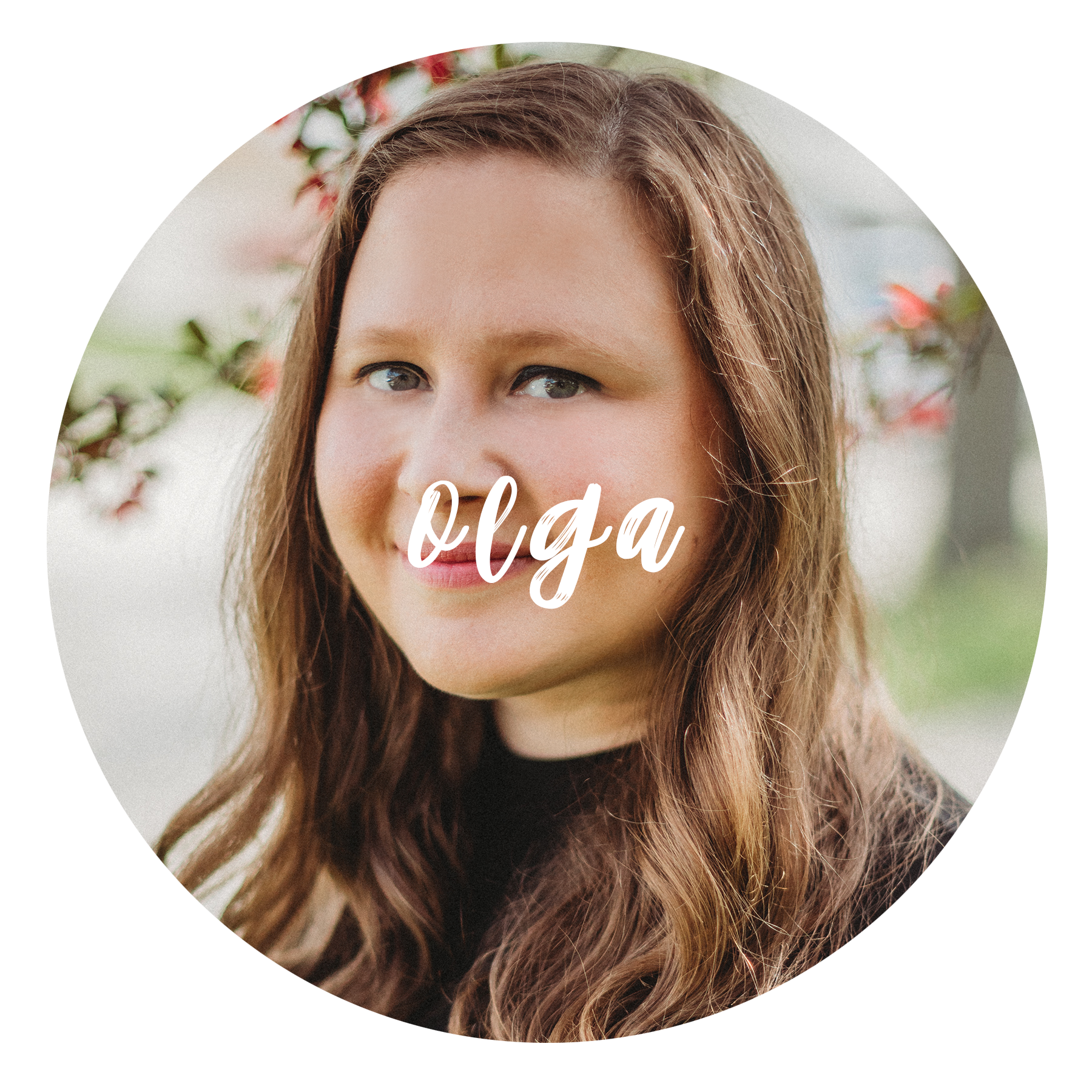2021 Impact Report
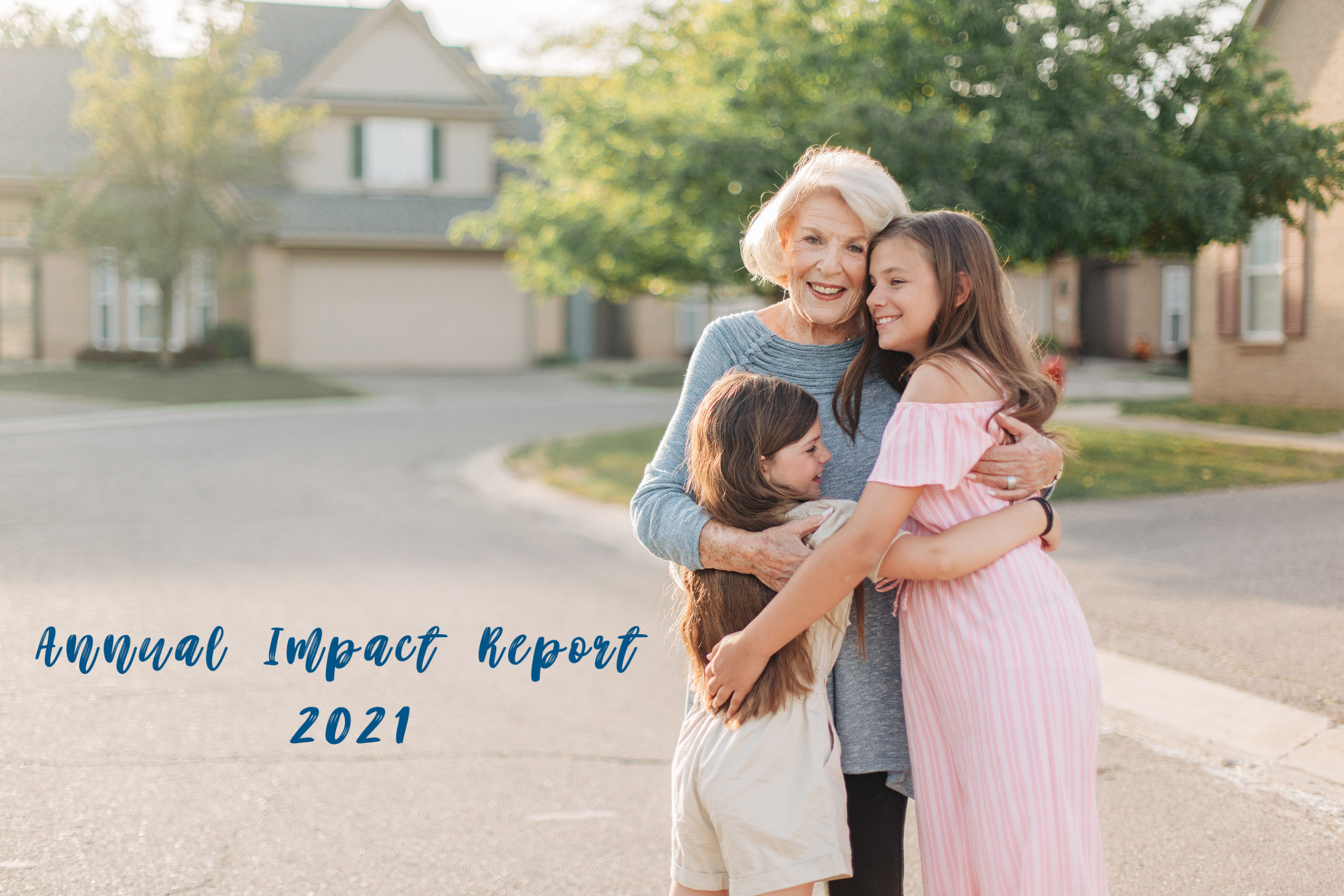
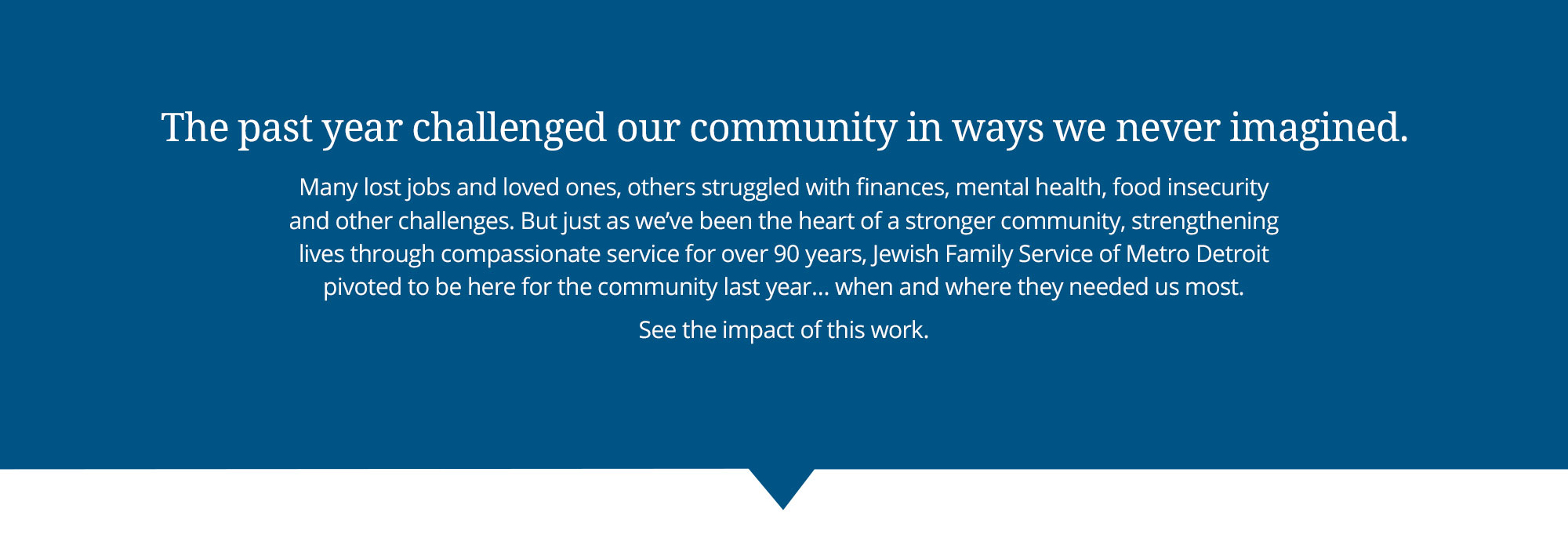
Cici Syms
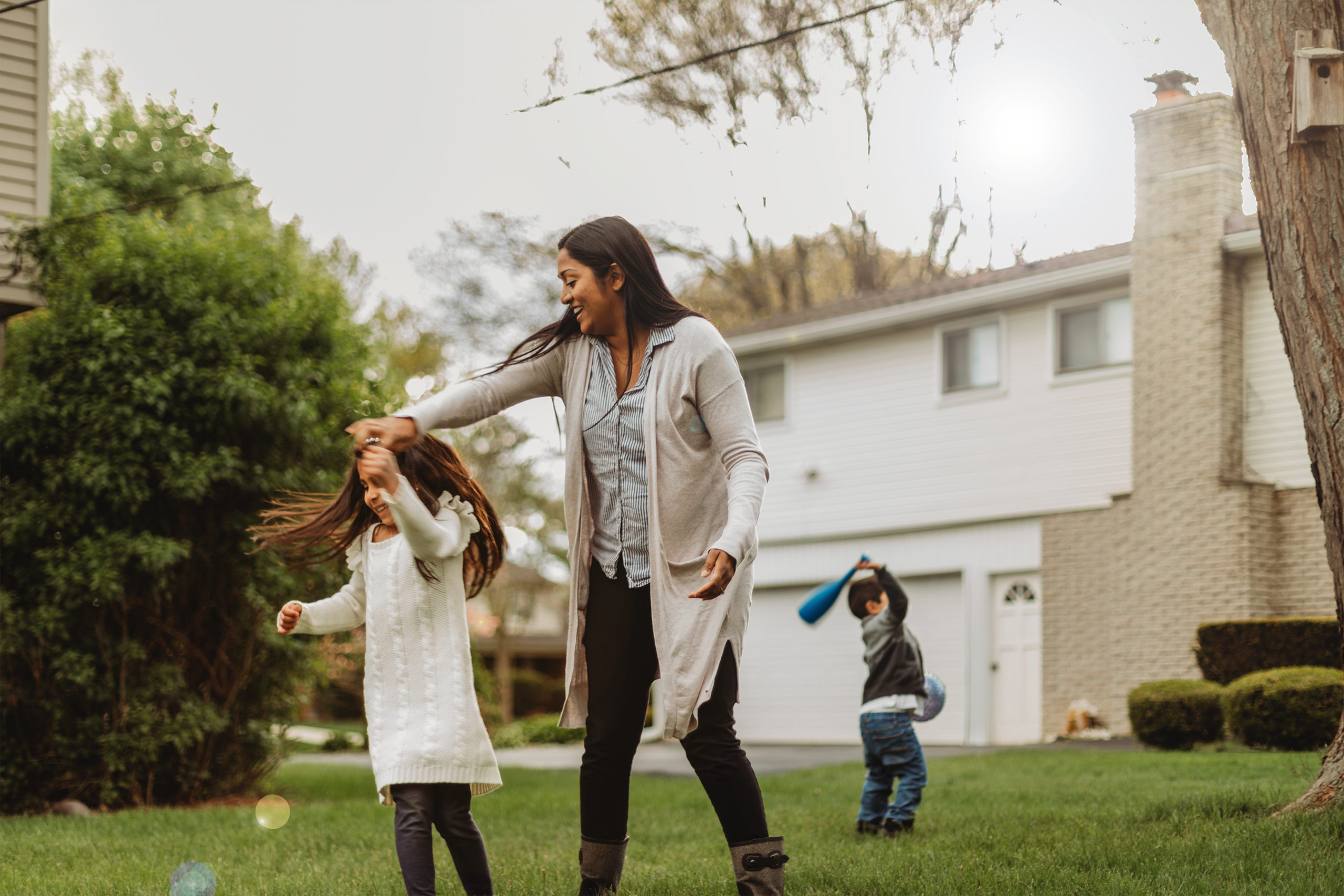

For Cici Syms, the mom switch never turns off.
Although six-year-old Rosie and three-year-old Max are the only ones fortunate enough to call her “mom,” anyone who interacts with the JFS social worker will undoubtedly be on the receiving end of a little mothering.
A case manager with the agency’s Family Support Services department for about two-and-a-half years, Cici works to ensure those she serve have their basic needs met.
For one client, that meant almost daily phone calls over a two-month period early in the pandemic.
“She was a front line worker who was experiencing feelings of panic when it was time to get out of her car and go to work,” Cici says. “There was no vaccine. I would walk her through breathing exercises and help her feel grounded before she would start her shift. This felt so important to me, to not only be able to meet her basic needs, but to help her get through such difficult moments.”
Like many of us, COVID-19 changed the way Cici performed her job. She still helped individuals and families keep the lights on and keep food on the table.
“But I was able to provide solidarity and emotional support because I was living through it too,” she says. “It was a powerful moment for me to navigate the pandemic hand-in-hand with my clients.”
Many of Cici’s clients were struggling financially and didn’t have the luxury of staying home and staying safe. Many of them were single mothers. So in order to be more accessible to them, Cici modified her workday to begin at 6:30am, before the demands of the day—and kids—kicked in.
“We talked about their basic needs,” she says. “But it was also about taking a moment and asking them ‘How are you really?’ and letting them know that it was OK if they weren’t OK.”
But it wasn’t only her clients that Cici was checking in on. Early in the pandemic, she volunteered to be a peer support counselor for her JFS colleagues. She ran a group of up to a dozen participants who talked about how they and their families were faring during this particularly challenging time.
“When you’re working from home, you can’t just pop over to a co-worker’s office for support,” she says. “So to be able to share our experiences in this group was impactful. And I love that JFS created that space for us.”
She’s also appreciative of the flexibility JFS has given her in how and when she works.
“I know that so many people are struggling through the pandemic. But there’s also been this hidden gem for me, to be able to spend so much time with my kids at such a young age,” she says. “I’m grateful that I could be the mom I needed to be in the last year.”

Janice Book

“Imagine you can have anything in the world.”
Janice Book is talking about the time in 2019 when she participated in the JFS Adopt a Family program. She shopped for a woman in her nineties.
“She could have asked for a luxury item. It was Hanukkah. But the only things on her wish list were kitchen towels, cat toys and cat litter.”
Janice had signed up for the program through Congregation Shir Tikvah and she noticed that the woman she was shopping for wasn’t the only one requesting pet supplies. As a pet owner and cat rescuer, Janice wanted to do more.
“I contacted Lindsay [Leder, senior director of marketing and communications at JFS and former manager of the Adopt a Family program] and we talked about setting up a program.”
JFS case managers began collecting information from clients about their pets. They found close to forty dogs, cats and birds in need of a little assistance. And Janice found help from her fellow congregants who were only too happy to donate supplies.
“You can’t do it alone,” she says. “It takes a village, or in this case, a great reform renewal temple.”
Janice wants to make it clear that the program is not about helping people spoil their pets. It’s about ensuring that our community’s most vulnerable members are able to provide for their furry family members. Especially since it can be a struggle for people to care for their pets when they cannot meet their own basic needs.
“It can be difficult for people to hear that their animals are not prioritized when their significance and meaning goes beyond what one might think,” says JFS social worker Michal Goldberg. “This program helps our clients, many of whom struggle with mental health issues, with maintaining a purpose and comfort that only their pets can bring.”
Janice wholeheartedly concurs.
“If you don’t have family, those animals are your family,” she says. “And they’ve never been more important than this past year.”

Ron & Steve Elkus
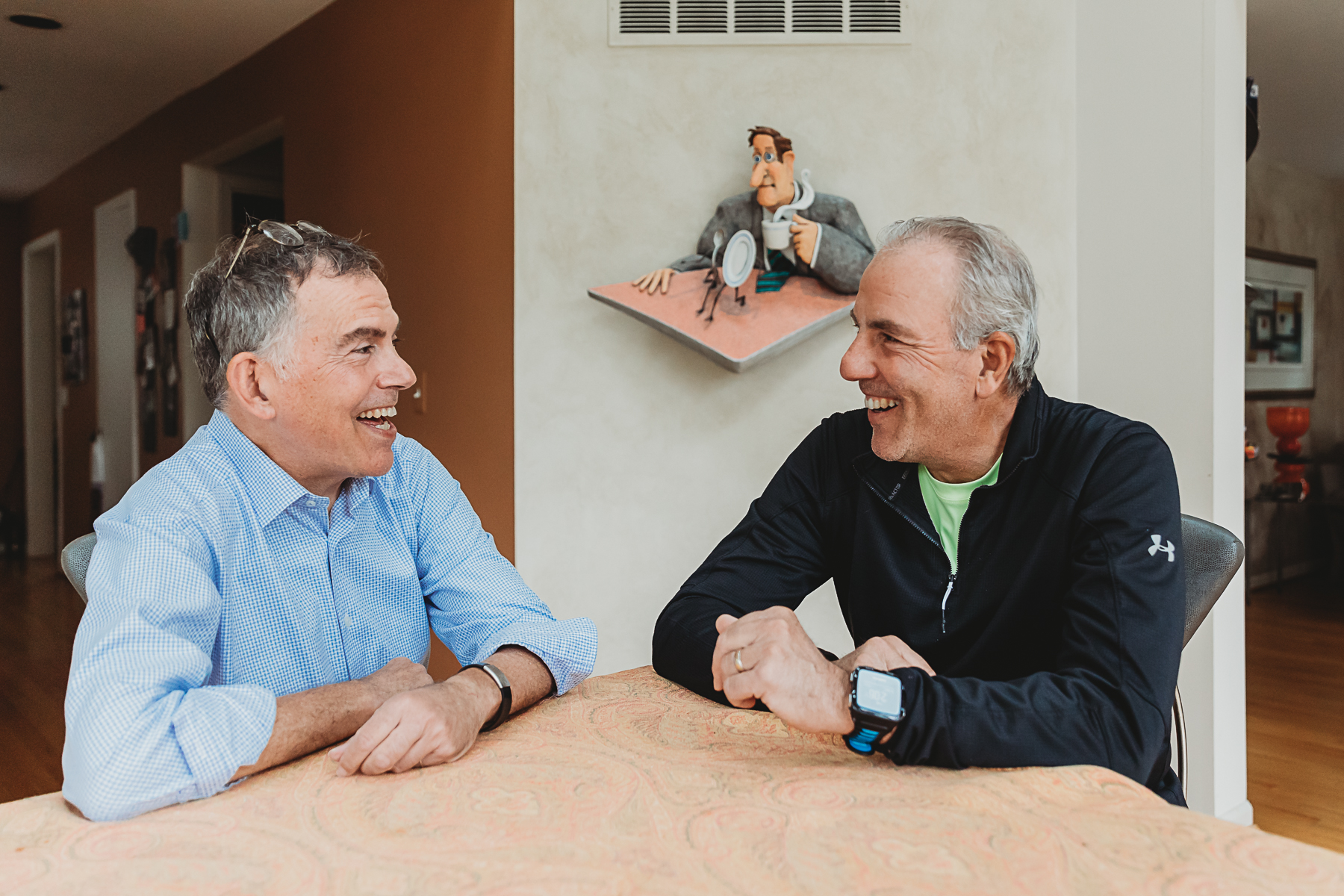
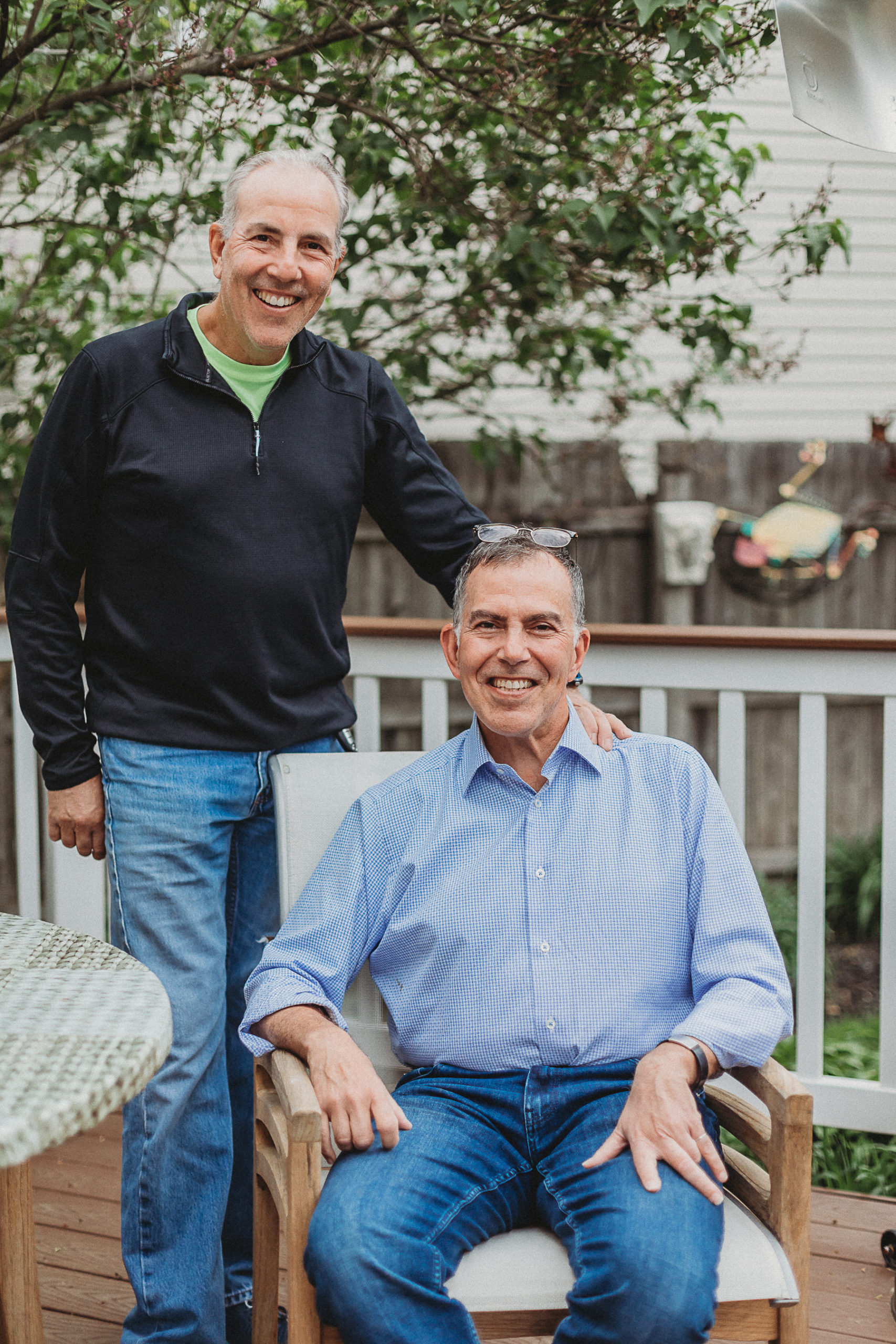
What happens when you retire two months before a global pandemic?
If you’re brothers Ron and Steve Elkus, you start volunteering for Kosher Meals on Wheels.
“Our dad always taught us to give back,” says Steve of their father Phil who volunteers at Marvin’s Bistro at the Fleischman residence. “He’s 95-years-old and he’s helping people younger than him.”
After successful careers in retail and dentistry (Ron owned the men’s clothing store The Shirt Box for forty years; Steve ran Mirror Image Dental Lab for 29 years), the brothers decided it was time to carry on the family tradition of giving back.
They had already been involved with the Make-A-Wish Foundation, having participated in an annual bike ride to raise money for the organization.
“We belong to Team Alex,” says Steve. “She was a young girl who passed away from cancer and her wish was the most unselfish thing I’ve ever seen. She wanted to make a Public Service Announcement about treating kids like her the same as anyone else.”
To volunteer with Jewish Family Service, Ron and Steve traded their two wheels for four, becoming delivery drivers for Kosher Meals on Wheels.
“We have the same route in Oak Park and Huntington Woods,” Ron says. “I’m Fridays and Steve is Mondays. We pick up the food around 8:30 in the morning and we’re done in about an hour. What I love about the program is that as the delivery people, we can’t leave until we see the person pick up the food. We might be their only contact that day, so if they’re not coming to the door and there’s a problem, we’re able to let JFS know.”
During the early days of the pandemic, many recipients of Kosher Meals on Wheels were stuck at home by themselves. Having meals delivered was a way to help keep these vulnerable community members feel safe. But it also provided a much needed touchpoint with another person during such an isolating time.
“I’ll sit on the porch with them and talk for a bit,” Steve says. “There’s more to this than just dropping off food. Having that little bit of conversation means something.”
Reflecting on his retirement, Ron says it’s about putting your efforts into something that allows you to feel value and find purpose.
“It’s about doing a mitzvah and connecting with people,” Ron says. “It’s good to do a mitzvah a day.”

Olga Semenova
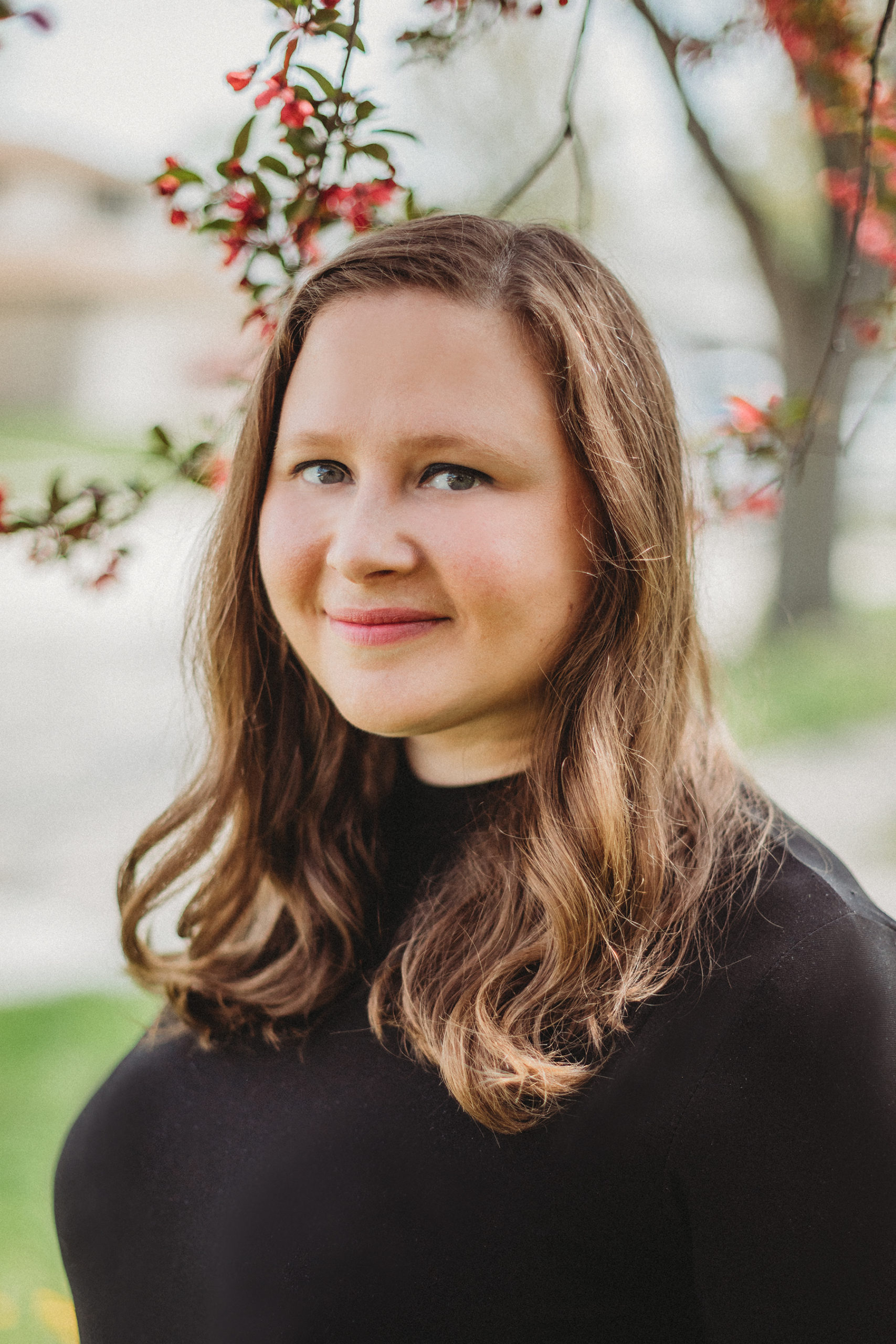
As the supervisor of healthcare navigation at JFS, Olga Semenova is responsible for helping hundreds of community members protect their health each year.
Along with a team of volunteers and interns, she assists people in applying for Medicaid and other insurance plans through the healthcare marketplace. She answers questions, guides them through the process, and makes sure they have the plan that’s right for them.
So when JFS announced in January of 2021 that it had procured COVID-19 vaccines for its employees, Olga was thrilled.
Now someone was looking out for her health.
“I was overjoyed that JFS offered the vaccine to staff,” she says. “It’s been hard not to be able to hug my grandpa for a year.”
JFS had contacted the Oakland County Health Division about getting staff and Kosher Meals on Wheels volunteers vaccinated as essential workers. In addition, it was able to obtain vaccines for the community’s most vulnerable members—Holocaust survivors, including Olga’s grandfather, Simon Shapiro.
“For the first shot we stayed together and were vaccinated by the same person,” Olga says. “My grandfather was very happy that the process was happening.”
Mr. Shapiro was just one of 175 survivors who received the vaccine at JFS’s office. The sight of so many people coming in, along with the feeling of hope in the room, was awe-inspiring.
“Of all our sacred work, there’s nothing more important than helping survivors,” says JFS CEO Perry Ohren. “For us to be able to do a homey clinic, at a place that’s familiar to them…I just don’t have the words.”
When it comes to how JFS has responded to the pandemic, Olga has plenty to say.
“JFS handled the transition really well, getting us laptops so we could work from home,” she says. “I miss seeing coworkers but I’m grateful to feel safe. I feel good that we’re paying attention to the science, as well as to the staff’s comfort level.”
Financials
[edsanimate_start entry_animation_type= "slideInLeft" entry_delay= "0" entry_duration= "1" entry_timing= "linear" exit_animation_type= "" exit_delay= "" exit_duration= "" exit_timing= "" animation_repeat= "1" keep= "yes" animate_on= "scroll" scroll_offset= "20" custom_css_class= ""] [edsanimate_end]
[edsanimate_end]
[edsanimate_start entry_animation_type= "zoomInRight" entry_delay= "0" entry_duration= "1" entry_timing= "linear" exit_animation_type= "" exit_delay= "" exit_duration= "" exit_timing= "" animation_repeat= "1" keep= "yes" animate_on= "scroll" scroll_offset= "20" custom_css_class= ""]
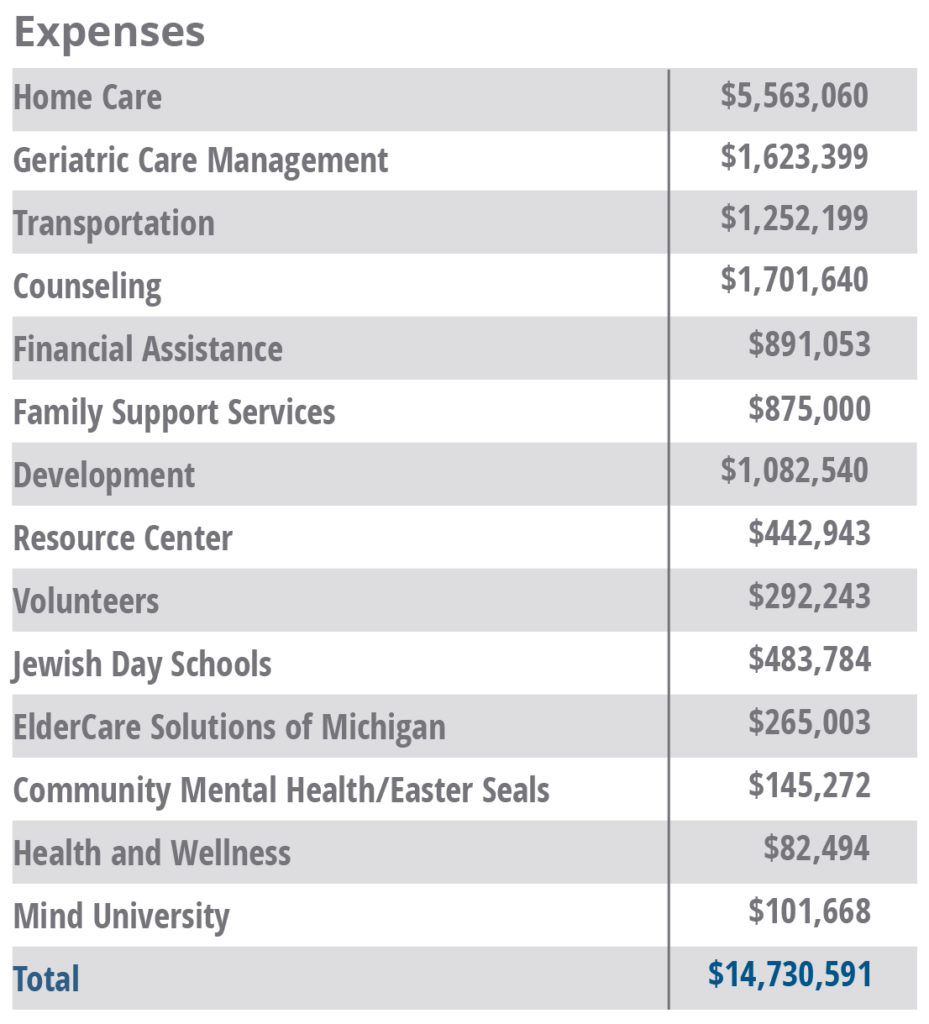
[edsanimate_end]





